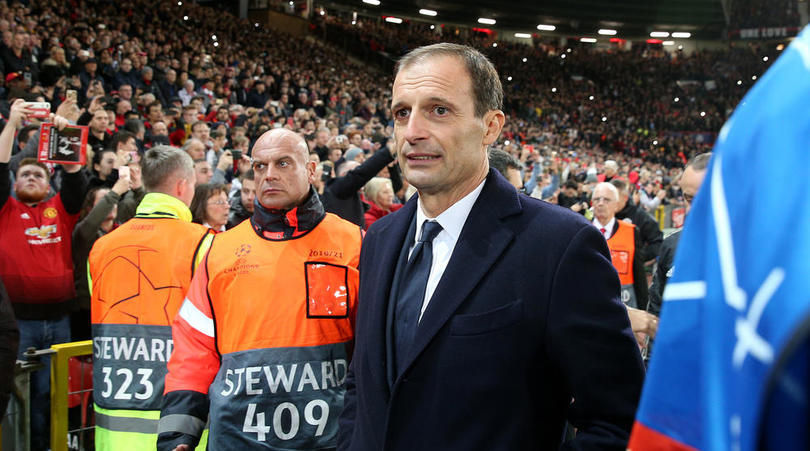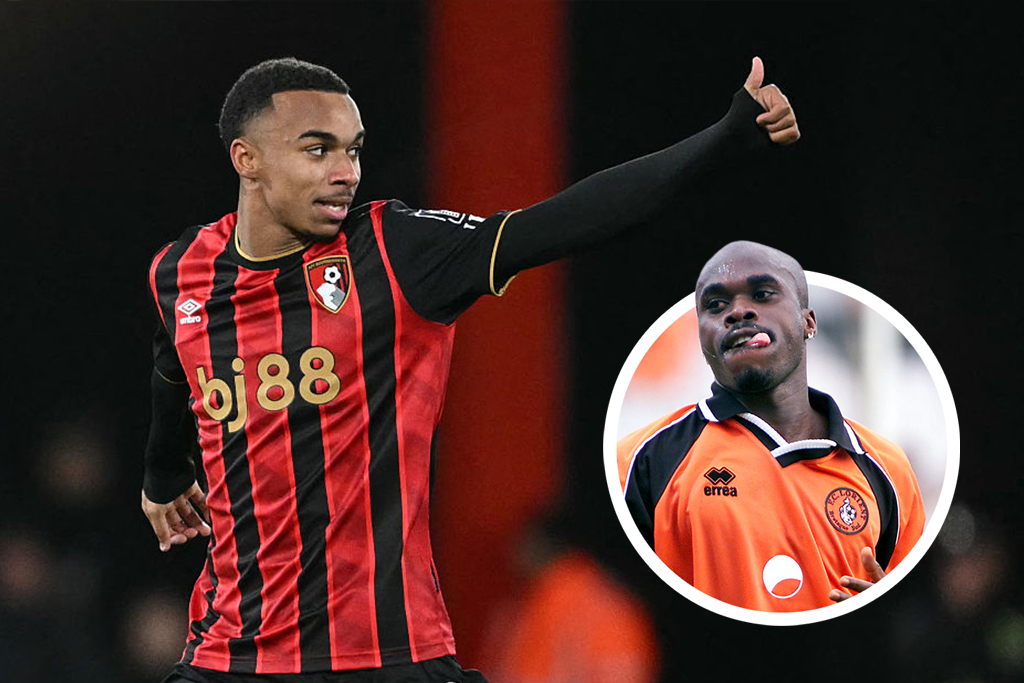How can caretaker managers succeed? 6 rules for ensuring a temporary dugout job goes well
With Freddie Ljungberg at Arsenal, Hayden Mullins at Watford and Duncan Ferguson at Everton, the Premier League is awash with caretaker bosses. Nick Moore spoke to some famous interims to discover the key to doing well
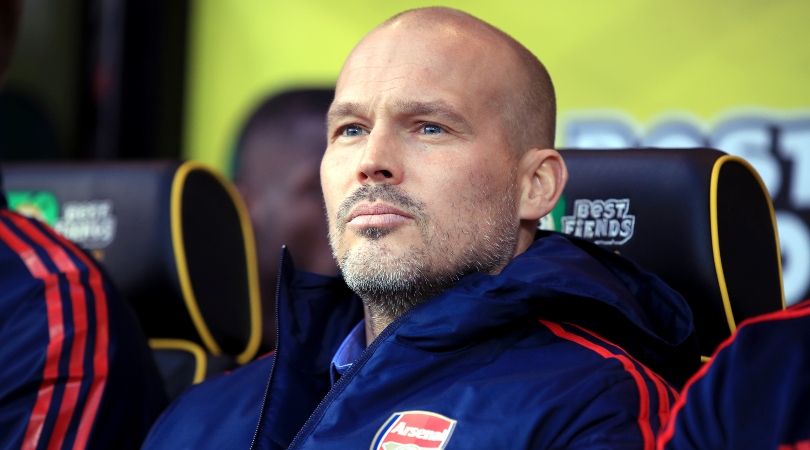
The best features, fun and footballing quizzes, straight to your inbox every week.
You are now subscribed
Your newsletter sign-up was successful
Want to add more newsletters?

Five times a week
FourFourTwo Daily
Fantastic football content straight to your inbox! From the latest transfer news, quizzes, videos, features and interviews with the biggest names in the game, plus lots more.

Once a week
...And it’s LIVE!
Sign up to our FREE live football newsletter, tracking all of the biggest games available to watch on the device of your choice. Never miss a kick-off!
Join the club
Get full access to premium articles, exclusive features and a growing list of member rewards.
This feature first appeared in the March 2019 issue of FourFourTwo magazine. Subscribe now for just £9.50 every three months
The role of caretaker or interim manager is arguably the oddest in football. Unlike a regular managerial position, it’s not clearly defined. Sometimes, it’s an extended job interview: turn things around and you might be allowed to unpack those boxes.
On other occasions, it’s dictated by a time limit – you are watching the shop, under clear instruction that new management is incoming and thus you are not a credible long-term candidate, sorry.
The relative success of an interim leader is difficult to assess – and it can be tough to win genuine plaudits. Taking over a side in relatively good shape and making no wild changes will generally result in any glory being attributed to the previous regime. Think of Rafa Benitez, who performed creditably at Chelsea but had to look at a banner that read, ‘We’re just not that interim’.
Revive an underperforming outfit, meanwhile, and many fans and pundits will suggest that it’s simply down to the departure of the divisive miseryguts who had previously been stinking out the place.
It’s hard to know how much to congratulate the temporary manager and how much to credit the previous gaffer’s absence. So what makes an effective caretaker, happy to potter around with a broom until told otherwise? Are they kindred spirits with substitute teachers, just trying to get through a lesson without suffering too much abuse? Or can they effect real change?
FFT investigates, with the help of those who answered their club or country’s calls during those moments of need, and we ended up with an informal guide of how to succeed...
The best features, fun and footballing quizzes, straight to your inbox every week.
Rule 1: Don’t look a gift horse in the mouth
Interim men are usually firefighters, often appointed in the wake of something intolerable happening. But sometimes things can be going swimmingly, only for fate to intervene, handing a caretaker manager the opportunity of a lifetime. That’s certainly the case for arguably the three most successful examples of all time: Mario Zagallo, Tony Barton and Roberto Di Matteo.
It’s easy to forget Zagallo was a caretaker when he was in charge of perhaps the finest team of all time, Brazil 1970, during their greatest moment. Previous boss Joao Saldanha had fallen out with Pele – even spreading a peculiar rumour that the forward was going blind, in an attempt to drop him – but Zagallo was experienced enough to juggle the egos and also change Brazil’s tactics, deploying a more defensive midfield. He went on to land the gig for four more years.
Zagallo was forward-thinking in training terms and had his side in perfect shape for the final against Italy. “We had a huge advantage in our physical preparation,” he later revealed. “We’d trained for 21 days at altitude.” But he didn’t question that he’d inherited a truly great team.
Tony Barton was also bequeathed an XI in good shape. Aston Villa’s quiet, methodical chief scout and de facto assistant manager had no designs on the No.1 spot, but in 1982 he was thrust into a leadership role – and with Villa just two rounds away from a European Cup final.
Ron Saunders had resigned in a fit of pique after a ding-dong with major shareholder Ron Bendall, nine months after guiding the club to their first league title in 71 years. His successor immediately won over the fans; Saunders, perhaps unwisely, had taken the job at fierce rivals Birmingham and his debut was the Second City Derby, where Barton outwitted his mentor.
“Saunders, you must be f**king mad,” chanted the Villa fans. Barton kept a dynamic unit ticking on their bizarre route to the Rotterdam final, including a trip to Kiev, where Gordon Cowans found a cockroach in his bread roll, and an Anderlecht semi-final that involved rioting and an injury crisis (“It looks like a battlefield in here,” said Barton of the Villa dressing room).
The Midlanders went into the final at De Kuip as the underdogs, up against a Bayern Munich team captained by Paul Breitner with Dieter Hoeness and Karl-Heinz Rummenigge in attack. Barton’s wife, Rose, put victory down partly to the lucky heather she’d slipped into Tony’s jacket, as Peter Withe fortuitously converted Tony Morley’s cross by miscuing his shot in off an upright – the only place beyond the keeper’s reach.
A shellshocked Barton, just 56 days into the job, declared it “the greatest moment in the history of Aston Villa”. He was right, and got hired, but the comedown was inevitable. He was fired in 1984.
The issue of how much credit a caretaker manager should receive after a major achievement is reflected in Barton’s legacy. He had kept Villa steady – in fact, they didn’t concede under him as they became champions of Europe via scores of 0-0, 2-0, 1-0, 0-0 and 1-0 – but to what degree was this Saunders’ team?
The percentages are impossible to calculate. Barton died in 1993, aged 56, and his wife always felt his contribution was never properly acknowledged, saying, “I would like to see something at Villa Park with his name on.”
Oddly enough, Barton’s situation was repeated exactly 30 years on. Following the dismissal of Andre Villas-Boas in March 2012, Chelsea No.2 Roberto Di Matteo suddenly inherited a team in the Champions League knockout stages.
He, too, led his new charges to a showpiece against Bayern Munich – played in Die Roten’s back yard – where, like Barton, the caretaker bagged European football’s biggest trophy.
“Robbie deserves a lot of credit for what he brought to us,” recalled Blues captain John Terry, currently an assistant himself at Aston Villa, who were also led by Di Matteo in 2016. “There are little things I look back on and think, ‘That was a great touch’.”
The Italian arranged for wives and children to say how proud they were of their husbands and fathers before the final. “It’s one thing that will never leave me,” said Terry. “Even the younger players had their parents wishing them good luck.”
Di Matteo explained, “I wanted to take a bit of pressure away from them, and it did exactly that.” Di Matteo gladly took the plaudits for helping the Blues to become the first London team to win the European Cup or Champions League, but as with Barton, you sense the caretaker factor puts an asterisk by his name.
Post-Munich, he lasted just eight months and was replaced by another interim, the much-maligned Benitez. “That’s life,” sighed Di Matteo. “Time, in football, is very precious.”
But he took his chance with a fine team – and sometimes that’s all a caretaker can do.
Rule 2: Make some bold changes
The length of an interim manager’s reign is an important factor when it comes to assessing how much they can get done, how they will be judged, and the amount of pressure they’ll be under.
Joe Mercer – the only England caretaker boss ever to win a match – made several radical changes after inheriting Alf Ramsey’s charges in 1974. He severed one of the last links with the boys of ’66 by dropping a 30-year-old Martin Peters, and gave starts to livewires Kevin Keegan and Stan Bowles before making way for Don Revie.
Peter Taylor also had a short but fascinating stint as England gaffer. It came as an almighty surprise, following Keegan’s resignation in the Wembley lavatories after defeat to Germany in October 2000.
“It was quite odd,” Taylor admits to FFT. “I was watching the England match at Wembley, in the stands with the family and friends of the players. I remember Rio Ferdinand’s mum, when we heard Kevin had resigned, saying, ‘You’ll be the next one, Peter.’ I replied, ‘Cor, I wouldn’t mind.’ I never dreamed it could happen. But it did.”
A one-game brief, away to Italy at Turin’s Stadio delle Alpi, made for relatively stress-free circumstances for Taylor, a man already 14 years into his managerial career at the time.
“My situation was different to most caretakers,” he explains. “I was already in work, at Leicester. It was a bit like Solskjaer at Manchester United – he still [had] a club in Norway [Molde] to go back to if necessary.
“I knew I was only doing one match and I’d already met Sven-Goran Eriksson, who was coming in, so it was never going to be permanent. I decided I would just enjoy it, and I did.
“It was nice picking the team, lovely having a squad and great having that England get-together. I’m an Essex boy and never dreamt I would one day manage England, so it was just a very proud moment.”
But Taylor, who had already been in charge of England’s Under-21s, did show that however short a caretaker’s stint might be, you can still make a statement. He appointed David Beckham as captain for the first time and selected the youngest squad in years, featuring Gareth Barry, Rio Ferdinand, Jamie Carragher, Kieron Dyer, Emile Heskey and Seth Johnson – all aged between 19 and 22 – with no players over 30.
“I’m proud of that,” says Taylor, now at Dagenham & Redbridge in his 20th different spell as a manager. “The best thing I did in the job was picking that young squad. And not so much changed after I did. Sven went the younger route, too, and if you look at Gareth Southgate now – blimey, we’re going so young that it’s frightening!
“Sven was up in the stands that night in Italy, and I hope he was thinking to himself: ‘These young players can handle it’. That pleased me. They didn’t send me any cheques through the post, though!” Nevertheless, even one game can have an effect.
Rule 3: Learn fast on the job
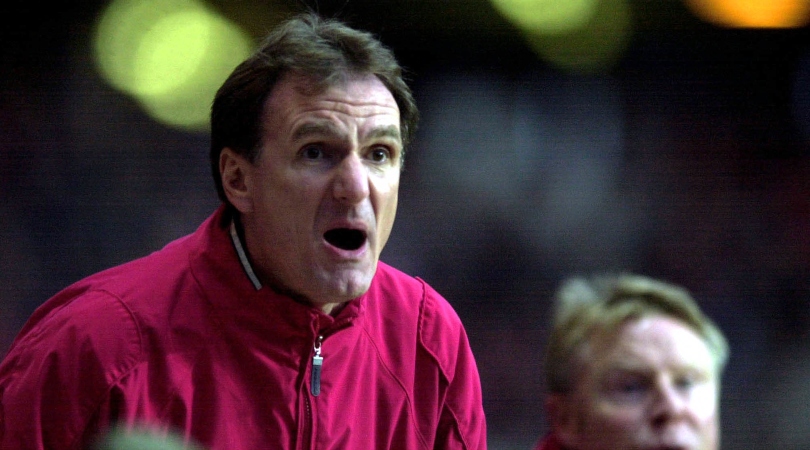
The role of assistant manager – who is always the person most likely to become interim boss – is, by definition, completely different to that of manager. They’re usually (though not always) more involved in the coaching side and less immersed in decision-making.
They are people for the details and not the big picture. Making the step up, therefore, often means having to ditch the old approach completely.
“My role as assistant coach at Liverpool was as the aggressor,” says Phil Thompson, who became caretaker in October 2001 when Gerard Houllier was rushed to hospital following a heart attack.
“Gerard was the composed one and I was the nark, the moaner! Suddenly I had to be calmer. I literally had to change my personality. I was picking the team now, making the substitutions, and I had to be tactically aware. I decided to be more composed and asked Sammy Lee to step up and do my old role as the motivator.”
Thompson had to act fast, because Houllier’s medical problems had come out of the blue. “It was all so sudden – I didn’t have any time to think about things,” he tells FFT. “It’s not like things had been slowly going wrong. It was unusual, and of course the overriding thing at first was worrying about Gerard’s health. It was a matter of life and death.”
Liverpool couldn’t press pause while Houllier recuperated, however; a Champions League trip to Kiev was already booked for the day after their match against Leeds, when he went into hospital.
“The plan was in motion, so we had to get on with it,” recalls Thompson. “On Sunday afternoon, we were flying while Gerard was under the knife. On these trips, Gerard and me would always sit across three seats – he’d be by the window, I’d be on the aisle and we’d have two bags of Wine Gums between us. This time it was just me and the Wine Gums.”
Thompson learned fast, winning two Manager of the Month awards as Liverpool rose to 2nd in the Premier League with their caretaker at the helm. “The pressure was on me because we’d been going well,” he remembers.
“I had been a reserve-team manager at Liverpool before, but this was different. Results are now directly your responsibility, and you’re also dealing with the media. “I hadn’t done team talks before. Luckily, I’d listened to a lot of good ones, from Bill Shankly through to Gerard.
“And I used his absence as a motivational theme. Every game, I fed on that – I’d have something on the flipchart saying, ‘Do it for the boss’. Gerard remained a big part of our thinking until he returned at the end of the season.”
Most of all, Thompson remains proud to have silenced the critics who viewed him as little more than a touchline motormouth. “It was nice, proving to people that I had it in me,” he says. “People had questioned it, and there had been talk of bringing in an ex-manager. But I thought: ‘Hold on, I’ve got experience’.
“I like that I showed them I wasn’t just Mr Angry. I’d come through those doors as a 15-year-old apprentice under Shankly, so it took me a while to get my head around the fact that I was doing what Shankly once did. Handing back over to Gerard, knowing I had done my bit, was enormous.”
Rule 4: Respect the outgoing manager
There’s a deeply political element to being an interim manager. In the case of internal promotions, a former colleague and sidekick has been moved on. This could be someone with whom you’ll work again in the future, or whose new team you may soon end up facing.
Myth or not, the ‘new manager bounce’ can make an interim seem like a genius. “Look, you idiot, Paul Pogba is amazing if you just push him on a bit and let him play!” was the overriding fan emotion when Jose Mourinho was replaced by Solskjaer, who temporarily removed the shackles from the World Cup winner. But it’s important for the new No.1 to never actually say things to this effect: the scope for being bitten on the arse a few months down the line is vast.
“The last thing you want to do is go in and say all the wrong things about how the sacked manager was handling things,” explains Peter Taylor, who – as well as his cameo coaching England – took the interim job at Gillingham in 2017 following the dismissal of Ady Pennock.
“It’s a bit odd, and awkward. I was fortunate that I’d had a long career in management and had taken over from some really good managers – Tony Pulis, Micky Adams, Martin O’Neill. But you must respect the guy you’re taking over from, however inexperienced they are.
“In Ady’s case at Gillingham, I was already the director of football and the chairman wanted to make a change even earlier than he did. I actually pleaded with him to give Ady longer. He was a young boss and I had respect for him.
“At the same time, coming in, I needed Gillingham to start winning because we had to stay up. So sometimes you’ve got to change things, by picking a different side and playing the right shape. But it shouldn’t be a statement about the old boss.”
Rule 5: Don’t slag off the press
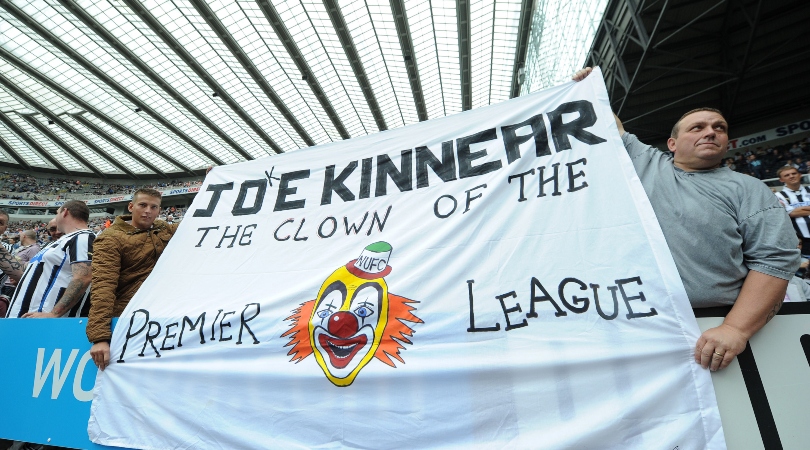
A caretaker manager is easy prey for fans and the press – after all, if they were really any good, they’d just get the job outright... right? So, it was probably unwise for John Carver to declare in May 2015 that he was “the best coach in the Premier League”, having taken Newcastle from the top half into an ongoing relegation dogfight with nine points from a possible 48.
Carver, who had replaced Alan Pardew, also used a press conference to produce a handwritten “open letter to the fans” from club captain Fabricio Coloccini in his defence, and offered to meet a group of angry fans “for a cup of tea”.
But all of this pales into comparison against what had gone on with Joe Kinnear. It’s always shrewd, as a boss, to form media alliances – consider the English tabloids’ U-turn on Gareth Southgate, previously portraying him as a dull yes-man, now hailing him for being polite and thoughtful.
Kinnear opted instead to open his first press conference as the temporary manager of Newcastle in September 2008 with this unbeatable dig at a local Daily Mirror journalist:
Kinnear: “Which one is Simon Bird?” Bird: “Me.” Kinnear: “You’re a c**t.” Bird: “Thank you.”
Kinnear then went off on a 10-minute rant to rival Don Logan, Ben Kingsley’s unhinged no-gooder in the 2000 crime movie Sexy Beast. Kinnear: “F**k off, it’s your last f**king chance… you ain’t got the f**king balls to be a f**king manager. Do I have to listen to you? What are you, my personal secretary? F**k off.”
The conference traversed several topics: whether the squad had the day off upon Kinnear’s arrival (“It’s none of your f**king business”), the assorted journalists’ own motivations (“Newcastle are getting beat – you must be f**king delighted”) and whether he should stop swearing at them (“If I’m not the flavour of the month with you, it don’t f**king bother me – f**king print it”), before Joe concluded with some surreally dull platitudes about training (“I’ve loved every minute of it”).
After such a heroically crackers beginning, the former Wimbledon and Luton boss was marked: his boneheaded remarks (calling Charles N’Zogbia ‘Charles Insomnia’) received no mercy from the tabloids, and by February 2009 Kinnear was in hospital with heart issues. A second interim, Geordie messiah Alan Shearer, stepped in for the remaining eight games.
He couldn’t untangle a probably untangle-able situation, though, and collected only five points during the run-in. But he didn’t call anyone anything horrible, retaining his godlike status on Tyneside.
It’s a lesson Phil Thompson took with him into the media. “When I went back to TV, I knew an awful lot more about being a manager,” he tells FFT. “I realised there is a lot more going on behind the scenes that people who criticise managers don’t know about. That made me careful about what I said about other bosses.”
Rule 6: Don’t outstay your welcome
This may be the golden rule, yet a few big names have fallen foul of it. Alf Ramsey was one. He took the Birmingham reins as a ‘consultant’ in September 1977, picking the team and working on employing the next manager. The man behind English football’s greatest moment started well, taking the Blues from rock-bottom to mid-table (despite telling his Scottish players who were bitter about ’66, “I f**king hate you even more”), but by March things had gone badly wrong and Ramsey – no longer a tracksuit manager – effectively had to sack himself.
David Pleat’s fourth stint with Spurs wasn’t ideal, either. In 2003/04 Glenn Hoddle was sacked as early as September, yet Pleat ended up in charge until the end of the campaign, not because of any standout achievements but because Daniel Levy couldn’t figure out who to hire.
Santiago Solari took over Real Madrid in October 2018 and was appointed ‘permanent’ manager two weeks later, only because La Liga rules forbid clubs from deploying a caretaker for longer than a fortnight.
Having started with four straight wins, things gradually unravelled for the former Blancos midfielder, and he was dismissed within five months of taking the job.
The absolute maestro of handling this awkward situation of timing is Tony Parkes. A Blackburn coach and scout who knew what he was good at, Parkes did six caretaker spells with Rovers (1986-87, 1991, 1996-97, 1998, 1999-2000, 2004) and one with Blackpool (2008-09), before happily shuffling aside, unprotesting, whenever a new broom was purchased.
For that, he can perhaps be designated the caretaker manager’s caretaker manager. Hats off.
Overall, it seems, caretakers should expect little praise, but enjoy the comparatively smaller amount of pressure involved and appreciate the game’s pleasures where available.
Peter Taylor, for one, is still game. “If Gareth Southgate ever fancies a weekend off,” he smiles to FFT, I’ll send him my number. No worries!”
While you're here, why not take advantage of our brilliant subscribers' offer? Get the game's greatest stories and best journalism direct to your door for only £9.50 every quarter. Cheers!
NOW READ...
LIST 13 of the best football films and documentaries to watch on Amazon Prime
QUIZ Can you name the 48 Premier League managers with at least 50 wins?
GUIDE How to watch Amazon Prime Premier League fixtures for FREE
Nick Moore is a freelance journalist based on the Isle of Skye, Scotland. He wrote his first FourFourTwo feature in 2001 about Gerard Houllier's cup-treble-winning Liverpool side, and has continued to ink his witty words for the mag ever since. Nick has produced FFT's 'Ask A Silly Question' interview for 16 years, once getting Peter Crouch to confess that he dreams about being a dwarf.
 Join The Club
Join The Club










